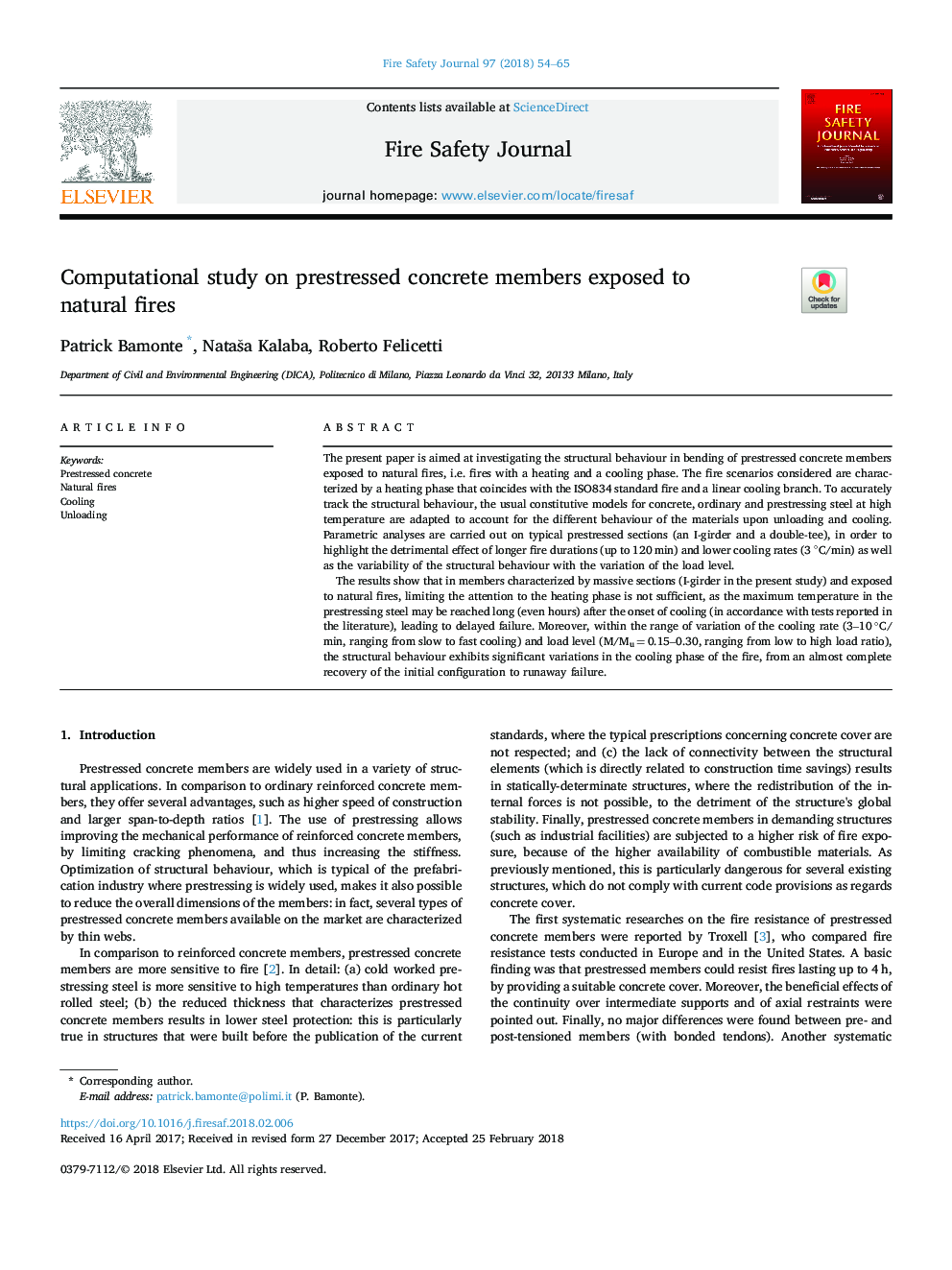| Article ID | Journal | Published Year | Pages | File Type |
|---|---|---|---|---|
| 6741761 | Fire Safety Journal | 2018 | 12 Pages |
Abstract
The results show that in members characterized by massive sections (I-girder in the present study) and exposed to natural fires, limiting the attention to the heating phase is not sufficient, as the maximum temperature in the prestressing steel may be reached long (even hours) after the onset of cooling (in accordance with tests reported in the literature), leading to delayed failure. Moreover, within the range of variation of the cooling rate (3-10â¯Â°C/min, ranging from slow to fast cooling) and load level (M/Muâ¯=â¯0.15-0.30, ranging from low to high load ratio), the structural behaviour exhibits significant variations in the cooling phase of the fire, from an almost complete recovery of the initial configuration to runaway failure.
Related Topics
Physical Sciences and Engineering
Engineering
Civil and Structural Engineering
Authors
Patrick Bamonte, Nataša Kalaba, Roberto Felicetti,
